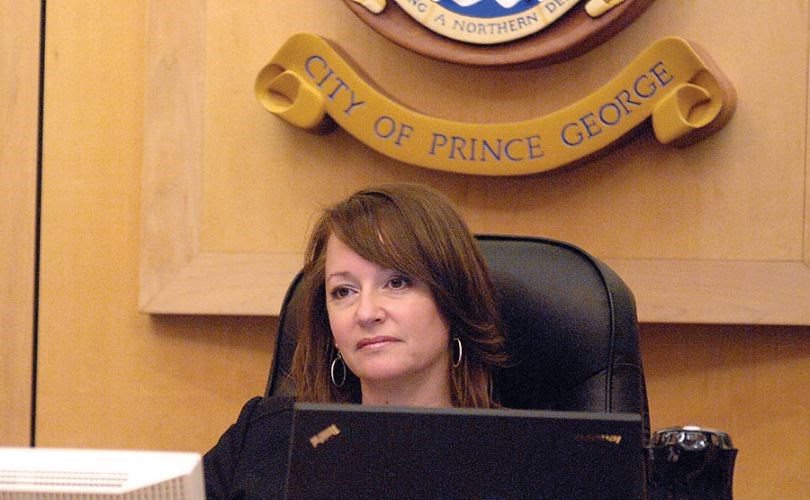There are fewer resolutions for the province's local government leaders to debate this week at their annual convention, which is a good thing, according Prince George Mayor Shari Green.
Starting today, municipal politicians from across the province will converge on Vancouver for the annual Union of B.C. Municipalities convention.
During the three-day meeting, delegates will vote whether to endorse 156 resolutions, setting the group's policy and work plan for the upcoming year.
This is the lowest number of resolutions since 2001, which the UBCM resolutions committee said indicates a "focusing of local government interest on selected important issues."
The 2012 convention went through 203 resolutions and the most came in 2007 with delegates voting on 261 ideas.
The proposed resolutions span topics such as a health, land use, community safety, taxation, and finance. Most of the resolutions have a regional and/or a provincial focus.
"And lots of them have huge dollars attached without a path to find those dollars," said Green. "That's just big asks of the province and the feds and they're as tapped as we are in our ability to pay."
The mayor said she would like to see the UBCM membership be more focused and strategic with their priorities in order to "actually achieve some of those things on the list."
Prince George is sponsoring one resolution on the list - an idea headed by Coun. Albert Koehler for more support for post-secondary engineering and technology programs.
Getting funds for this specialized training, especially in the schools where it's not currently on offer, is something Koehler has advocated for years. The resolution has been recommended for endorsement by UBCM and is expected to pass without debate.
The North Central Local Government Association is sponsoring two resolutions at this year's conference.
They deal with the ongoing conflict of interest issue and the ability for communities such as Dawson Creek, with a growing number of residents living just outside of city limits, to receive credit for the extra pressure on their services.
"So there's a good in the sense of tax coming in, but on the negative side you're not being given credit for the number of users that are using the facilities, your health care, etc," said Coun. Dave Wilbur, the city's NCLGA representative.
Wilbur said he is also planning to speak to what he calls "the silliness that happens at UBCM."
He highlighted a resolution out of Victoria calling for a lower default speed limit - from 50km/h to 40km/h on highways within municipal boundaries.
"And I think part of our job is to disclose ideas that are good and those that are bad and bring a rational dialogue explaining, in a civil way, why it doesn't fit," Wilbur said. "Sometimes it's just urban versus rural, but sometimes it's just common sense gone amuck."
The Sunshine Coast Regional District has put forward a proposal to closely examine how effective the resolution process is.
Coun. Brian Skakun, who chairs the city's intergovernmental resolutions committee, said he expects there to be some good discussion about the issue, which he notes is causing growing frustration.
"There's a lot of work that goes into the resolutions and I think the government's response is lacking sometimes," he said.
Last year, the UBCM membership endorsed two of the city's three resolutions, to share a portion of the gas tax as well as create revenue-sharing agreements for interested parties but the provincial government dismissed them.
Regional District of Fraser-Fort George board chair Art Kaehn - who is also on the UBCM executive as the electoral area representative - said he believes the resolution process is working and that people are working at all levels of government to streamline it.
He said resolution sponsors have co-ordinated efforts to reduce the number of resolutions so that they're relevant to as many as possible and so they're manageable for UBCM to handle.
"You get 150 resolutions, you're lucky to deal with 20 of them in a year," said Kaehn. "And sometimes it takes years to get through different resolutions."
Skakun said he would also like to see more time devoted to the resolution debates during the convention. The organization's resolutions committee has acknowledged that completing the debates are still challenging, despite allocating about five-and-a-half hours over three days to the task.
"There's a number of good resolutions. There's a number that deal with coastal issues and northern B.C. issues but it's a good opportunity for local governments to get together and try and help each other with their concerns," he said.



